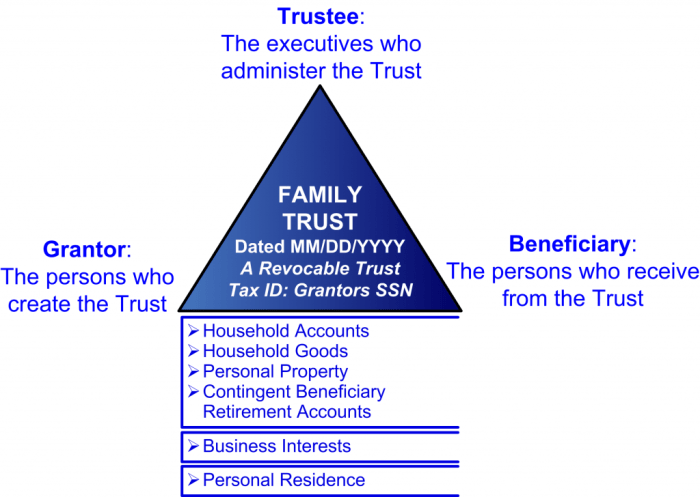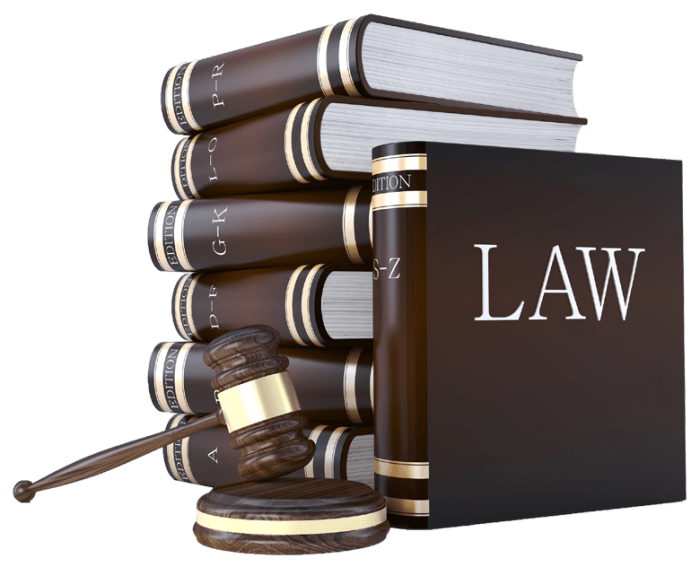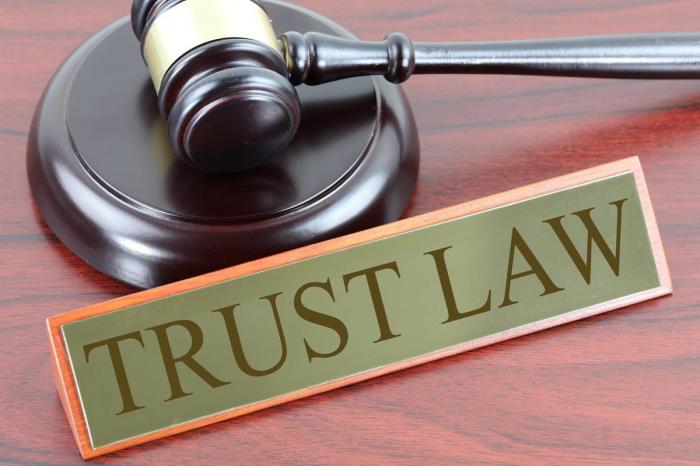What are the legal trust resources for self-help legal representation? This is a question that many people ask when they are facing legal problems. The answer to this question can vary depending on the specific circumstances of each case. However, there are some general resources that can be helpful to people who are representing themselves in court.
Legal trust resources can provide valuable assistance to individuals who are representing themselves in court. These resources can help people understand their legal rights, navigate the court system, and prepare legal documents. By utilizing legal trust resources, individuals can increase their chances of success in court.
Legal Trust Resources
Legal trust resources are specialized organizations or programs that provide free or low-cost legal assistance to individuals who cannot afford an attorney. These resources can be a valuable option for self-help legal representation, as they can provide access to legal advice, guidance, and support.
There are a number of different types of legal trust resources available, including:
- Legal aid organizations
- Pro bono attorneys
- Law school clinics
- Community legal centers
Each type of legal trust resource has its own unique strengths and weaknesses, so it is important to research the different options available in your area to find the one that is best suited to your needs.
Legal trust resources can provide a number of benefits for self-represented litigants, including:
- Free or low-cost legal advice
- Guidance on how to navigate the legal system
- Assistance with preparing legal documents
- Representation in court
If you are considering self-help legal representation, it is important to contact a legal trust resource to learn more about the services they offer and to see if you qualify for assistance.
Accessing Legal Trust Resources
To access legal trust resources, you will typically need to contact the organization or program directly. You can usually find contact information for legal trust resources in your area by searching online or by contacting your local bar association.
Once you have contacted a legal trust resource, you will need to provide them with some basic information about your case, such as the type of legal issue you are facing and your financial situation. The legal trust resource will then assess your eligibility for assistance and will let you know what services they can provide.
Ethical Considerations
Attorneys who provide legal trust resources have a number of ethical obligations, including:
- Providing competent legal advice
- Maintaining confidentiality
- Avoiding conflicts of interest
Attorneys who violate these ethical obligations may be subject to disciplinary action.
Types of Legal Trust Resources

Legal trust resources are organizations or services that provide legal assistance to individuals who cannot afford to hire a private attorney. These resources can vary in the types of legal services they offer, the target audience they serve, and the way they are accessed.
The following table provides an overview of the different types of legal trust resources available:
Types of Legal Trust Resources
| Resource Type | Description | Target Audience | Access Information |
|---|---|---|---|
| Legal Aid Organizations | Nonprofit organizations that provide free or low-cost legal services to low-income individuals and families. | Low-income individuals and families | Typically accessed through local offices or by phone. |
| Pro Bono Attorneys | Attorneys who volunteer their time to provide free legal services to those in need. | Individuals who cannot afford to hire a private attorney | Typically accessed through legal aid organizations or pro bono programs. |
| Online Legal Resources | Websites and other online platforms that provide free or low-cost legal information and resources. | Individuals who need legal assistance but cannot afford to hire an attorney | Typically accessed through the internet. |
| Legal Clinics | Law school clinics that provide free or low-cost legal services to the public under the supervision of law professors. | Individuals who need legal assistance but cannot afford to hire an attorney | Typically accessed through law schools. |
These are just a few of the many types of legal trust resources available. By understanding the different types of resources available, you can find the best option for your specific legal needs.
– Discuss the role of self-help legal websites in providing legal trust resources.

Self-help legal websites are an increasingly popular way for people to access legal information and assistance. These websites offer a variety of resources, including legal forms, articles, and videos, that can help people understand their legal rights and options. Some websites also offer online legal advice and assistance from attorneys.
Self-help legal websites can be a valuable resource for people who are facing legal problems. They can provide information and assistance that can help people understand their rights and options, and they can help people to avoid making costly mistakes.
Advantages of using self-help legal websites
- Convenience:Self-help legal websites are available 24 hours a day, 7 days a week. This means that people can access legal information and assistance at any time that is convenient for them.
- Affordability:Self-help legal websites are typically much more affordable than hiring an attorney. This can be a significant advantage for people who are on a tight budget.
- Privacy:Self-help legal websites can provide a private and confidential way to get legal information and assistance. This can be important for people who are concerned about their privacy.
- Empowerment:Self-help legal websites can help people to feel more empowered to handle their own legal problems. This can be a valuable benefit for people who are not familiar with the legal system.
Disadvantages of using self-help legal websites
- Accuracy:The information provided on self-help legal websites is not always accurate or up-to-date. This can lead to people making mistakes that could have serious consequences.
- Bias:Self-help legal websites are often biased towards one side of a legal issue. This can make it difficult for people to get an objective view of their legal rights and options.
- Complexity:The legal system is complex, and it can be difficult for people to understand their rights and options without the help of an attorney. This can lead to people making mistakes that could have serious consequences.
Legal Aid Organizations
Legal aid organizations are non-profit entities that provide free or low-cost legal assistance to low-income individuals and families. These organizations offer a range of services, including legal advice, representation in court, and assistance with legal paperwork.
To be eligible for legal aid services, individuals must meet certain income and asset requirements. The application process typically involves completing an intake form and providing documentation of income and assets. Once an application is approved, individuals are assigned to an attorney who will provide legal assistance.
Success Stories
Legal aid organizations have helped countless individuals navigate the legal system and achieve justice. Here are a few success stories:
- A single mother was facing eviction from her home. With the help of a legal aid attorney, she was able to negotiate a payment plan with her landlord and keep her home.
- A veteran was denied disability benefits. With the help of a legal aid attorney, he was able to appeal the decision and win his benefits.
- A family was facing foreclosure on their home. With the help of a legal aid attorney, they were able to modify their mortgage and save their home.
Pro Se Law Libraries
Pro se law libraries are specialized libraries that provide resources and assistance to individuals representing themselves in legal matters. These libraries offer a wide range of materials, including legal texts, forms, and online resources, to help individuals understand their legal rights and responsibilities.Pro se law libraries typically offer a variety of services, including:
- Access to legal materials, such as statutes, case law, and legal treatises
- Assistance with legal research
- Notary services
- Computer and internet access
- Legal clinics and workshops
List of Pro Se Law Libraries
There are pro se law libraries located throughout the United States. Some of the most well-known pro se law libraries include:
- The Law Library of Congress in Washington, D.C.
- The New York State Law Library in Albany, New York
- The Chicago Bar Association Law Library in Chicago, Illinois
- The Los Angeles County Law Library in Los Angeles, California
- The San Francisco Law Library in San Francisco, California
In addition to these physical libraries, there are also a number of online pro se law libraries available. These online libraries offer a variety of resources, including legal forms, self-help guides, and online legal advice.
Online Legal Forms and Documents

The internet has made it easier than ever for individuals to access legal forms and documents. These resources can be a valuable tool for self-help legal representation, allowing individuals to draft their own legal documents without the need for an attorney.
However, it is important to use reliable sources for legal forms and documents to ensure that the documents are accurate and up-to-date.
Trusted Websites and Resources
There are a number of trusted websites and resources where individuals can access legal forms and documents. Some of these include:
- The Legal Services Corporation (LSC) provides a directory of legal aid organizations that offer free or low-cost legal assistance to low-income individuals.
- The American Bar Association (ABA) provides a directory of pro se law libraries that offer free or low-cost legal assistance to self-represented litigants.
- Nolo Press is a publisher of self-help legal books and software.
- LegalZoom is a website that provides online legal forms and documents.
- Rocket Lawyer is a website that provides online legal forms and documents, as well as access to attorneys for a monthly fee.
Benefits and Drawbacks of Using Online Legal Forms and Documents
There are a number of benefits to using online legal forms and documents. These include:
- Convenience: Online legal forms and documents can be accessed from anywhere with an internet connection.
- Affordability: Online legal forms and documents are typically less expensive than hiring an attorney to draft legal documents.
- Speed: Online legal forms and documents can be drafted quickly and easily.
However, there are also some drawbacks to using online legal forms and documents. These include:
- Accuracy: It is important to use reliable sources for legal forms and documents to ensure that the documents are accurate and up-to-date.
- Completeness: Online legal forms and documents may not include all of the necessary information for a particular legal situation.
- Legal advice: Online legal forms and documents cannot provide legal advice. If you have any questions about the law or your legal rights, you should consult with an attorney.
Role of Legal Professionals
Legal professionals can play an important role in reviewing and advising on the use of online legal forms and documents. An attorney can help you to:
- Choose the right legal form or document for your situation.
- Complete the legal form or document correctly.
- Understand the legal implications of the legal form or document.
Tips for Finding and Using Online Legal Forms and Documents
Here are a few tips for finding and using online legal forms and documents:
- Use a trusted website or resource.
- Read the instructions carefully before completing the legal form or document.
- Make sure that you understand the legal implications of the legal form or document before signing it.
- If you have any questions about the legal form or document, consult with an attorney.
Legal Hotlines and Phone Consultations

Legal hotlines and phone consultations provide self-represented individuals with access to legal advice and information from attorneys or other legal professionals. These services can be a valuable resource for those who cannot afford to hire an attorney or who need immediate legal assistance.Legal hotlines typically offer free or low-cost legal advice over the phone.
They are often staffed by volunteer attorneys or paralegals who provide general legal information and guidance. Phone consultations, on the other hand, are usually provided by private attorneys and may require a fee.
Legal Hotlines| Name of Service | Phone Number | Hours of Operation | Fees | Types of Legal Issues Covered | Languages Spoken ||—|—|—|—|—|—|| National Legal Aid & Defender Association | 1-800-621-3115 | 9:00 AM
5
00 PM EST | Free | Criminal, civil, and immigration law | English, Spanish || Legal Aid Society of New York City | 1-888-663-6529 | 9:00 AM
5
00 PM EST | Free | Civil law | English, Spanish, Chinese || Texas Legal Services Center | 1-800-622-2520 | 9:00 AM
5
00 PM CST | Free | Civil law | English, Spanish | Phone Consultations| Name of Service | Phone Number | Hours of Operation | Fees | Types of Legal Issues Covered | Languages Spoken ||—|—|—|—|—|—|| Avvo | 1-855-288-6161 | 24/7 | $39 per 15 minutes | All legal issues | English, Spanish || LegalZoom | 1-800-773-0888 | 24/7 | $39 per 30 minutes | All legal issues | English, Spanish || Rocket Lawyer | 1-800-826-9454 | 24/7 | $39 per 30 minutes | All legal issues | English, Spanish |
Legal Clinics and Law School Resources
Legal clinics and law school resources play a crucial role in providing access to legal trust resources for self-help legal representation. They offer a range of services, including legal advice, document preparation, and representation in court proceedings.
Legal clinics are typically staffed by law students who are supervised by licensed attorneys. They provide free or low-cost legal services to low-income individuals and families. Law school resources, such as libraries and legal writing centers, offer research assistance, document drafting, and other support services to law students and the general public.
Types of Services Offered, What are the legal trust resources for self-help legal representation
- Legal advice: Legal clinics and law school resources can provide legal advice on a variety of topics, including family law, housing law, and consumer law.
- Document preparation: Legal clinics and law school resources can help individuals draft legal documents, such as wills, trusts, and contracts.
- Representation in court proceedings: Legal clinics and law school resources can represent individuals in court proceedings, such as landlord-tenant disputes and small claims cases.
List of Legal Clinics and Law School Resources
There are many legal clinics and law school resources available for self-representation. Some of the most well-known include:
- The Legal Aid Society
- The National Legal Aid & Defender Association
- The American Bar Association’s Pro Se Resource Center
- The National Center for Law and Economic Justice
- The National Association of Legal Services Corporations
Explain the concept of community legal education programs and their role in self-help legal representation.
Community legal education programs are designed to provide individuals with the knowledge and skills they need to represent themselves in legal matters. These programs offer a variety of educational resources, including legal information websites, hotlines, legal clinics, and workshops. By providing access to these resources, community legal education programs help individuals to understand their legal rights and responsibilities, and to navigate the legal system effectively.
Types of educational programs and resources available through community legal education programs
* Legal information websites and hotlines:These resources provide individuals with access to information on a variety of legal topics, including family law, housing law, and consumer law. They can also provide referrals to legal aid organizations and other resources.
Legal clinics and workshops
These programs offer individuals the opportunity to meet with attorneys and other legal professionals for free or low-cost legal advice and assistance.
Pro se legal assistance
Some community legal education programs offer pro se legal assistance, which provides individuals with the support and guidance they need to represent themselves in court.
Benefits of community legal education programs for individuals and communities
Community legal education programs offer a number of benefits for individuals and communities. These benefits include:* Increased access to justice:Community legal education programs help to increase access to justice for individuals who cannot afford to hire an attorney.
Improved legal knowledge and skills
These programs help individuals to understand their legal rights and responsibilities, and to navigate the legal system effectively.
Empowerment
Community legal education programs help individuals to feel more confident and empowered in their ability to handle legal matters.
Stronger communities
Community legal education programs help to build stronger communities by providing individuals with the tools they need to resolve legal problems and to advocate for their rights.
Legal Self-Help Books and Publications
Legal self-help books and publications play a vital role in providing legal trust resources for self-representation. They offer comprehensive guidance and practical advice on various legal matters, empowering individuals to navigate the complexities of the legal system on their own.
These resources provide clear and accessible explanations of legal concepts, step-by-step instructions on legal procedures, and sample legal documents. They are particularly useful for individuals with limited legal knowledge or those who cannot afford to hire an attorney.
Advantages of Legal Self-Help Books and Publications
- Accessibility:Self-help books and publications are readily available at bookstores, libraries, and online platforms, making them easily accessible to anyone seeking legal guidance.
- Affordability:Compared to the cost of hiring an attorney, self-help books and publications are a cost-effective option for individuals on a budget.
- Convenience:These resources allow individuals to learn about the law and address their legal issues at their own pace and convenience.
- Empowerment:By providing comprehensive legal information, self-help books and publications empower individuals to take control of their legal matters and make informed decisions.
Disadvantages of Legal Self-Help Books and Publications
- Limitations:Self-help books and publications cannot provide personalized legal advice or represent individuals in court.
- Accuracy:The accuracy and reliability of self-help books and publications can vary, so it is important to choose reputable sources.
- Complexity:Some legal matters may be too complex to be adequately addressed through self-help resources, and professional legal advice may be necessary.
Reputable Legal Self-Help Books and Publications
- Nolo’s Essential Guide to Law and Legal Procedures
- The Lawsuit Survival Guide: A Legal and Emotional Toolkit for Representing Yourself
- Legal Forms for Everyone: All the Documents You Need for Personal and Business Matters
- Bird & Cronin’s Legal Forms: Wills, Trusts, and Estate Planning
- Divorce Without a Lawyer: A Practical Guide for Representing Yourself
Online Legal Research Tools
The internet has revolutionized the way we access information, including legal information. Online legal research tools provide self-represented individuals with access to a wealth of legal resources, empowering them to navigate the legal system more effectively.
These tools offer several benefits. They are often free or low-cost, making them accessible to individuals with limited financial means. They are also convenient, allowing users to research legal issues from the comfort of their own homes or offices.
However, it is important to be aware of the limitations of online legal research tools. These tools cannot provide personalized legal advice, and they may not be up-to-date with the latest legal developments. It is always advisable to consult with an attorney for complex legal matters.
Reputable Online Legal Research Tools
- LexisNexis: A comprehensive legal research platform that provides access to a vast database of legal cases, statutes, and regulations.
- Westlaw: Another popular legal research platform that offers a similar range of resources to LexisNexis.
- Google Scholar: A free search engine that allows users to search for academic articles, case law, and other legal materials.
- Legal Information Institute (LII): A non-profit organization that provides free access to a wide range of legal information, including legal codes, court opinions, and law reviews.
- FindLaw: A website that provides free access to legal articles, forms, and other resources for self-represented individuals.
Legal Assistance for Specific Populations

Legal assistance is not always readily available to everyone, especially for specific populations who may face barriers in accessing legal services. However, various programs and resources exist to provide legal assistance to these populations, ensuring equal access to justice.
Eligibility Criteria and Application Process
Eligibility criteria and application processes for legal assistance programs vary depending on the specific population and program. Generally, programs consider factors such as income level, age, veteran status, and legal issue.
Types of Legal Assistance Programs
Programs offer a range of legal services tailored to the needs of specific populations, including:
Low-income individuals
Legal aid organizations, pro bono attorneys, and community legal clinics
Seniors
Senior citizen legal services, elder law attorneys, and government programs
Veterans
Veterans Legal Services, pro bono attorneys, and VA-accredited attorneys
Benefits of Legal Assistance
Seeking legal assistance can provide numerous benefits for specific populations, including:
Improved access to justice
Legal assistance programs help individuals navigate complex legal systems and ensure their rights are protected.
Reduced financial burden
Many programs offer free or low-cost legal services, reducing the financial burden of legal representation.
Enhanced legal knowledge
Programs provide education and resources to help individuals understand their legal rights and responsibilities.
Table of Legal Assistance Programs
| Population | Eligibility Criteria | Application Process | Contact Information ||—|—|—|—|| Low-income individuals | Income below poverty level | Contact local legal aid organizations | [List of Legal Aid Organizations] || Seniors | Age 60 or older | Contact local senior citizen legal services | [List of Senior Citizen Legal Services] || Veterans | Served in the military | Contact Veterans Legal Services | [List of Veterans Legal Services] |
Role of Technology
Technology plays a crucial role in providing legal assistance to specific populations, offering online resources and mobile applications that:
- Provide legal information and guidance
- Connect individuals with legal professionals
- Facilitate remote legal consultations
Challenges and Limitations
Despite the availability of programs, legal assistance for specific populations faces challenges, including:
Funding constraints
Programs often rely on limited funding, which can restrict their capacity to provide services.
Limited availability of qualified attorneys
Finding qualified attorneys who are willing to provide pro bono services can be challenging.
Recommendations for Improvement
To improve legal assistance for specific populations, consider:
Increasing funding
Allocate more resources to legal aid organizations and pro bono programs.
Expanding eligibility criteria
Broaden the eligibility requirements to reach more individuals in need.
Promoting pro bono services
Encourage attorneys to provide pro bono representation to specific populations.
Ethical Considerations for Self-Help Legal Representation
Self-help legal representation raises ethical concerns due to the potential for conflicts of interest, the duty to disclose material facts, and the obligation to avoid misleading the court.Seeking legal advice when necessary is crucial, especially in complex matters or when personal interests may be compromised.
Ethical self-help legal representation involves:
- Thorough preparation and understanding of legal processes
- Seeking legal counsel when needed
- Honesty and forthrightness with the court
- Avoiding misleading or harassing tactics
- Respecting the opposing party’s rights
Unethical self-help legal representation can lead to sanctions, reputational damage, and legal malpractice claims.
Ethical Dilemmas and Resolution
Ethical dilemmas may arise, such as:
- Conflicts of interest: Representing oneself in a matter involving personal gain or bias.
- Withholding material facts: Failing to disclose information that could impact the case.
- Misleading the court: Providing inaccurate or incomplete information.
Resolving these dilemmas requires:
- Seeking legal advice to assess potential conflicts
- Disclosing all relevant information to the court
- Correcting any misleading statements promptly
Table of Ethical Considerations
| Ethical Consideration | Guideline ||—|—|| Conflict of Interest | Seek legal advice to assess potential conflicts || Duty to Disclose | Disclose all relevant information to the court || Avoid Misleading the Court | Correct any misleading statements promptly || Seek Legal Advice | Consult a lawyer when necessary || Honesty and Forthrightness | Be honest and forthright with the court || Respect for Opposing Party | Respect the rights of the opposing party |
Sample Dialogue
Lawyer:It’s important to consider the ethical implications of self-help legal representation. Conflicts of interest, the duty to disclose, and the obligation to avoid misleading the court are crucial. Client:I understand. I’ll make sure to seek legal advice if needed and disclose all relevant information.
Case Study
A self-represented individual withheld information about a prior conviction to avoid negative consequences in a current case. This unethical behavior led to the case being overturned on appeal, damaging the individual’s reputation and resulting in a legal malpractice claim.
Success Stories and Case Studies
Individuals who have successfully utilized legal trust resources for self-help legal representation have inspiring stories to tell. Their experiences offer valuable insights and lessons learned for anyone considering this path.
Overcoming Challenges
Self-help legal representation often presents challenges, but individuals have found ways to overcome them:
- Understanding the Legal Process:Legal trust resources provide guidance and support to help individuals navigate the complexities of the legal system.
- Accessing Legal Information:Online legal forms, legal aid organizations, and legal clinics offer free or low-cost access to essential legal information.
- Finding Emotional Support:Community legal education programs and support groups provide a sense of community and encouragement for individuals facing legal challenges.
Resources for Further Exploration
To further assist individuals seeking legal trust resources for self-help legal representation, here are additional resources that provide comprehensive information and support:
Websites
- American Bar Association’s Self-Help Legal Resources: https://www.americanbar.org/groups/legal_services/self_help_resources/
- Legal Services Corporation’s National Self-Help Legal Access Network: https://www.lsc.gov/national-self-help-legal-access-network
- National Center for Law and Economic Justice’s Self-Help Legal Resources: https://www.nclej.org/self-help-legal-resources/
Organizations
- National Legal Aid & Defender Association: https://www.nlada.org/
- American Civil Liberties Union: https://www.aclu.org/
- National Association of Legal Services Corporations: https://www.nalsc.org/
Publications
- Nolo’s Essential Guide to Legal Research: https://www.nolo.com/legal-encyclopedia/essential-guide-legal-research-30223.html
- Self-Help Legal Representation Manual: https://www.americanbar.org/products/inv/book/208241520/
- Legal Aid Society of New York City’s Self-Help Legal Guide: https://www.legalaidnyc.org/get-legal-help/self-help-legal-guide
Wrap-Up: What Are The Legal Trust Resources For Self-help Legal Representation
In conclusion, there are a number of legal trust resources available to people who are representing themselves in court. These resources can provide valuable assistance to individuals who are facing legal problems. By utilizing legal trust resources, individuals can increase their chances of success in court.
Quick FAQs
What are the benefits of using legal trust resources for self-representation?
There are many benefits to using legal trust resources for self-representation. These benefits include:
- Increased access to justice
- Reduced costs
- Greater control over the legal process
- Improved understanding of the law
- Increased confidence in the legal system
What are some examples of legal trust resources?
There are many different types of legal trust resources available to people who are representing themselves in court. These resources include:
- Legal aid organizations
- Pro bono attorneys
- Online legal resources
- Legal clinics
- Law libraries
- Legal self-help books
- Legal hotlines
How can I find legal trust resources in my area?
There are a number of ways to find legal trust resources in your area. You can:
- Contact your local bar association
- Search online for legal aid organizations
- Visit your local law library
- Attend a legal clinic